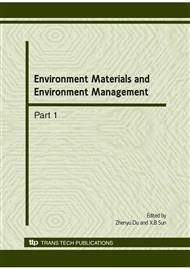p.1235
p.1239
p.1243
p.1250
p.1256
p.1261
p.1266
p.1270
p.1275
Knowledge-Based Environmental Information System Support for Wetland Resources Protection and Utilization
Abstract:
Unsuitable development of wetland area will cause serious environmental problems. Thus, wetland development and environmental protection has become an issue of national emphasis for the environmental management in the world. There is a demand for planning and decision strategies in this complex area. Because of the complexity and the enormous amount of relevant data, the decision makers need effective support for their decisions. The use of a knowledge-based approach is a solution for reducing this complexity. Accordingly, this study adopts knowledge management techniques and information technology to acquire and retain all kind of knowledge needed for the decision making process, and discusses the development of knowledge-based environmental information system promote the sustainable development wetland. The aim of this paper is to develop knowledge base system integrate with the existing information database and improve the knowledge base associated with environmental decision processes to help the sustainable development of wetland.
Info:
Periodical:
Pages:
1256-1260
Citation:
Online since:
June 2010
Authors:
Price:
Сopyright:
© 2010 Trans Tech Publications Ltd. All Rights Reserved
Share:
Citation:


